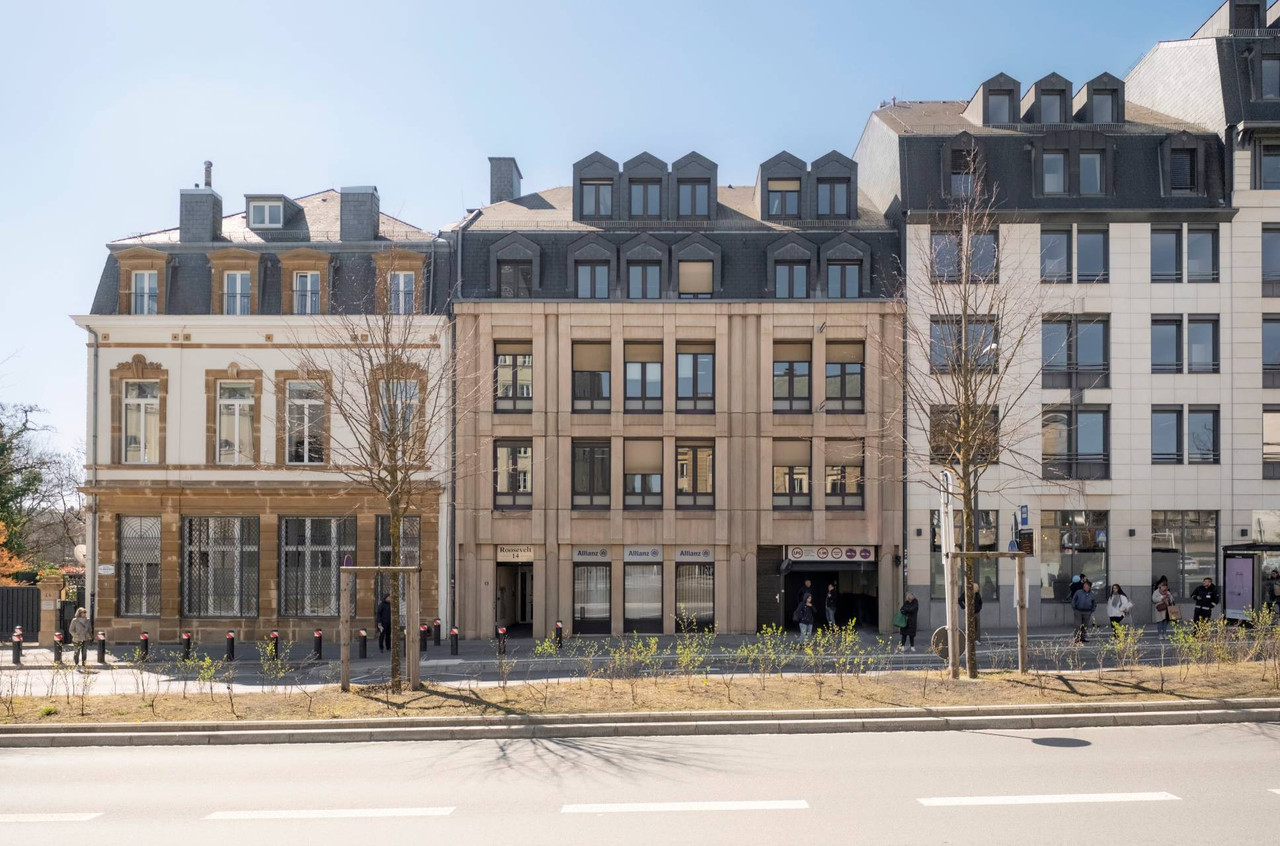Maison Worms, a French family office headquartered in Luxembourg, had spent 18 months looking for a building for its headquarters. “BNP Paribas Real Estate assisted us in our search and, at the beginning of the summer, offered us a building that met our criteria: the Allianz building,” explains Arnaud Decrulle, managing director of Maison Worms.
These criteria included location (city centre), a particular gross/net ratio and the correct partitioning of the internal space. The winning address--secured for an undisclosed amount--was 14, Boulevard Roosevelt.
Nevertheless, the building is far too big: the firm, it is estimated, only needs some 10% of the building’s gross surface area of 2,924m2. The solution? Bring other families on board: Faiveley, Bonnet, Kneip and Delcourt all participated in the purchase, led by Maison Worms, and can become occupants as well.
The building also has 27 parking spaces.
Renovation
The building was constructed in the mid-1980s by architect Théo Worré, and until now has been owned and occupied by Allianz. The insurance firm’s teams will remain in the building while the renovation designs are being done. “The building has a very sound, high-quality structure, as well as a good design for the interior spaces, with a clear layout and divisible floors,” says Decrulle. “So there’s no need to change the substance of the building. However, the technology is still in its original form--we need to bring it up to standard and improve its energy performance so that it can survive the coming decades.”
To this end, they have already asked Fabeck Architectes and Schroeder & Associés to join them in putting together the project management team. “We might need to remove the façade in order to review the building’s energy performance,” comments Stéphane Terver, head of investments and management at Maison Worms.
“In addition to the energy aspect, we will also be paying close attention to the architectural quality of the new façade,” adds Decrulle. “It will have to contribute to the creation of a high-quality urban environment and fit into its direct surroundings.”
At the rear of the building, a terrace built on the remains of the Vauban fortress--and with a view over the Pétrusse valley--is to be redone.
The families who signed the purchase agreement for this building, and who will occupy it in the future, have also entrusted the operational management of the works to Maison Worms. “We are also planning to invest heavily in energy upgrades,” says Decrulle.
Investment vision
“This asset-based approach is highly commendable,” says Cédric Kaison, head of advisory for Luxembourg at BNP Paribas Real Estate. “The aim here is to retain the best of an asset, improve it and--through targeted intervention--enable it to be repositioned at an excellent level on the market. This is the approach we usually see from institutional investors, and we are very pleased to see that Maison Worms, a private investor, also shares this vision.”
Decrulle adds: “We had to do it this way. We can’t destroy everything in order to rebuild; it wouldn’t be responsible. We have to take existing buildings and make them compatible with today’s expectations. That’s what we’re doing in the Cloche d’Or with the Alchemy project, and that’s what we’re aiming to do here too.”
For BNP Paribas Real Estate, it is also a successful transaction for this type of property, which is currently rare on the market. “We received a request from our client to launch the marketing of the building at a very special time, just before the summer,” explains Kaison. “We had to move fast and approach a lot of parties in a short space of time. Not everyone was able to position themselves, but there was competition. This buyer here proved to be the most convincing, not just in terms of price, but above all in terms of the security of the deal.”
For Kaison, deal security--meaning the credibility of the buyer--was a priority. He mentions Maison Worms’s experience in the market and knowledge of local practices: the firm has done similar transactions in the past. Another upside was that the deal wouldn’t be conditional on the obtainment of financing. “At a time like the present, these are very important factors,” he says.
This article in Paperjam. It has been translated and edited for Delano.
